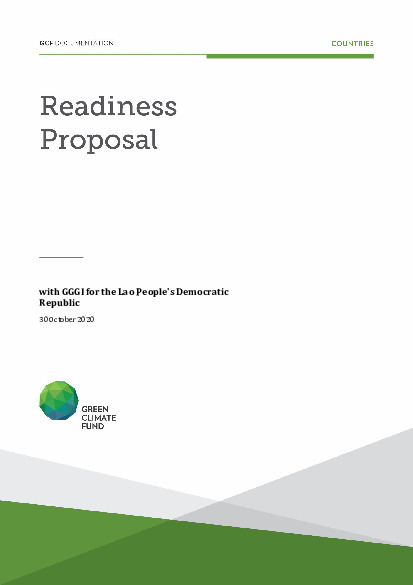Market Preparation for Industrial Energy Efficiency in Lao PDR
Ambitious policies, innovative business models and financial mechanisms combined with existing cost-effective technologies could improve energy intensity globally at a rate of 3% per year (IEA, 2019). However, most recent data available indicates that the primary energy intensity level in Lao PDR regressed1 by 72.3% between 2010 and 2015 due to, among others, limited information on energy consumption patterns, lack of public or private sector capacity for energy efficiency planning and implementation, limited regulatory framework, and low level of understanding of the benefits of energy efficiency.
Lao PDR government published in 2016 the National Policy on Energy Efficiency and Conservation which sets a 10% reduction target in energy consumption by 2030 compared to business-as-usual scenario. The target will be included in the Country’s first revision of its Nationally Determined Contribution (NDC) to be submitted to the UNFCCC in 2020. The Lao Government is also implementing its National Green Growth Strategy (NGGS) approved in January 2019 by the PM, and the industrial sector was selected as a priority because of its importance for local economic & social development and environmental sustainability. Specifically, “the design and implementation of financial mechanisms that provide industrial entrepreneurs access to efficient, environmentally friendly, energy and raw material-saving modern technologies” is one of the focus areas.
This Readiness proposal has been prepared to help the Government of Lao PDR implement the NGSS and achieve the energy consumption reduction target. It consists of developing a comprehensive set of activities to increase levels of awareness about green industrial practices and catalyze private investments in the deployment of energy efficiency measures in the industrial sector. The project deliverables comprise:
- An effective stakeholder coordination mechanism
- Lao PDR’s industrial energy efficiency policy guidelines and action plan.
- A training program for the development of local energy services companies (ESCOs) and auditing skills.
- At least 25 energy audits, technology options assessment and financial models completed across the industrial sectors.
- An Information Memorandum and an investor forum which will highlight identified energy efficiency investment opportunities and match private and public enterprises in the industrial sector with investors and financiers.
- A GCF concept note on industrial energy efficiency investment through ESCO delivery model
